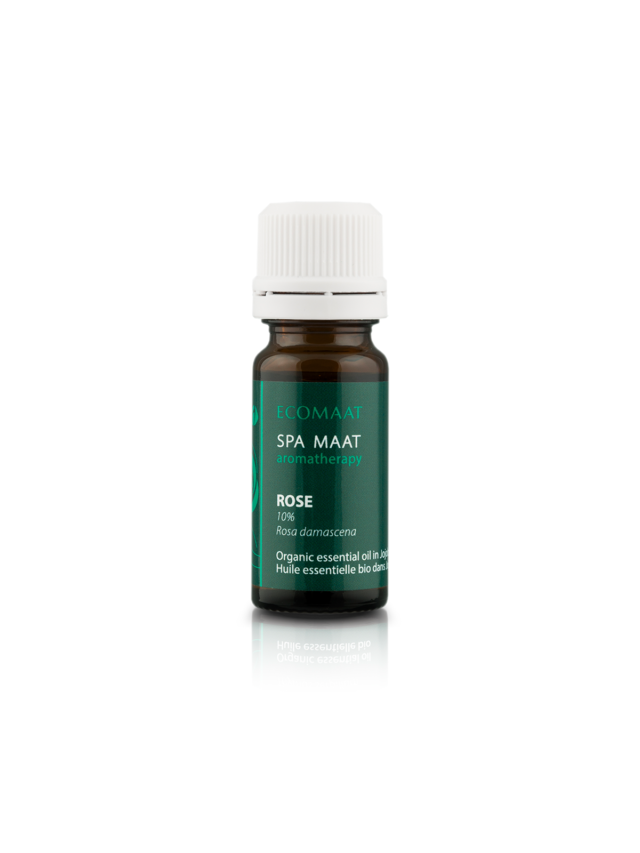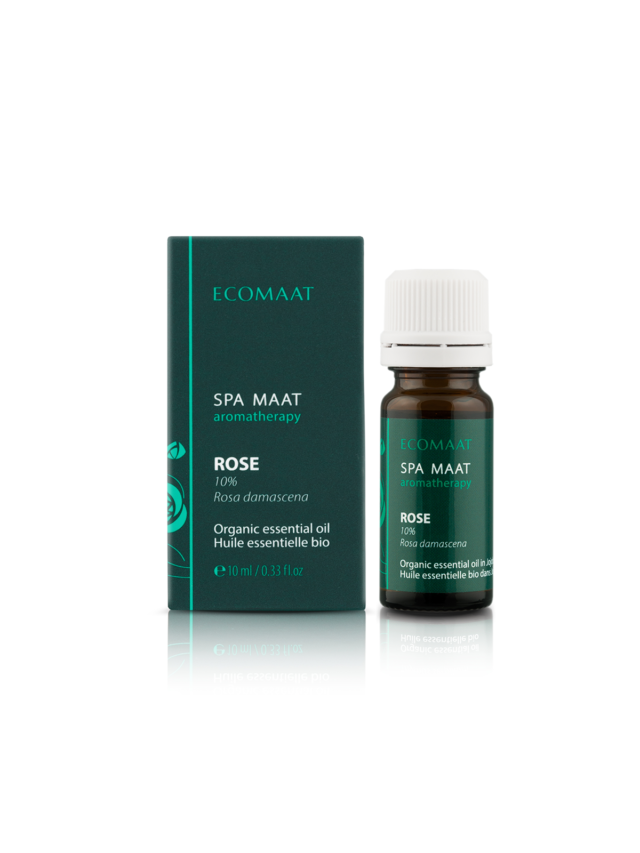
During Avicenna’s time, rose therapy reached its peak in Arab medicine, and rose oil was mentioned as follows: ‘This oil increases the brain’s strength and adaptability.’ Another famous representative, Al Harawi, emphasizes that rose products ‘strengthen the internal organs,’ and this toning effect is due to the rose aroma. After the 10th century, the improvement of human health through fragrances was called aromatherapy.
The effects of the rose aroma on memory have been analyzed since the 1970s when Bulgarian scientists conducted psycho-odorological studies on our rose oil. Tests conducted with students showed that its aroma stimulates neuro-psychic activity, resulting in increased concentration ability, accelerated work pace, and extended work capacity.
To this day, other controlled studies have been conducted on the impact of ‘rose’ aromatherapy. The experiments show a general beneficial effect of the rose aroma in enhancing memory and reducing emotional anxiety, increasing concentration and focus.
Scientific Experiment with the Scent of Roses
In a recent study published in February 2023 in the scientific journal “Nature,” German researchers reveal the results of a scientific experiment to improve foreign language learning using the scent of roses. The researchers are from the University of Freiburg, Germany (Institute for Frontier Areas of Psychology and Mental Health, Department of Psychiatry and Psychotherapy, and Faculty of Medicine). The results of the study show that inhaling the scent of roses leads to easier and faster memorization of words when learning a foreign language.
Let’s briefly look at the connection between memory and aromas through the eyes of the scientists observing brain reactions.
The scientific experiment involved 160 participants divided into 4 groups with different testing conditions. Their task was to learn 40 Japanese words with German translations in 3 days. Participants in Group 1 did not inhale the scent of roses throughout the study. People in Group 2 were stimulated by the scent of roses during learning and sleep. Group 3 – during learning and testing, and Group 4 – during learning, sleep, and testing. Participants performed intermediate tests after each learning session and three final tests 1, 7, and 28 days after the last learning session.
Results of the Study
Participants in Group 4, who inhaled the scent of roses during learning, sleep, and testing, learned 8.5% more foreign words compared to the other groups. In summary, the aroma assisted in memorizing the vocabulary. The researchers suggest inhaling the scent of roses for at least 3 days and nights to achieve better results. In conclusion, the researchers share: ‘The study shows that there is an easy, effective, and economical way to improve memory productivity in everyday life.’ The researchers demonstrated that this effect can be easily achieved outside the laboratory. The results also show that the additional use of aromatic rose sticks during the vocabulary test enhances memory.
The Brain and Memory
The formation of memory is usually divided into three main steps: encoding (transforming information from the environment into working memory), consolidation (stabilizing the content of working memory for later retrieval), and retrieval (the stored information can be recalled by activating parts of the formed memory). The hippocampus is responsible for transferring the content from short-term memory to long-term memory.
When we are awake, we gather a vast amount of information through our senses, but only a small part of this information enters our long-term memories. Information is determined as suitable to be stored or as unnecessary and is forgotten. It has been proven that emotional ‘labels’ play a role in this process and also what happens repeatedly is worth remembering.
This process of memorization can be stimulated, and here the aroma of roses plays a role, with which the brain associates specific information. The participants in the study inhaled the rose aroma while learning foreign words. During the night, the scent appears again during sleep. ‘The re-inhalation of the aroma during sleep activates the hippocampus, thus, the scent seems to trigger reactivation of the hippocampus for the study content. This reactivation is interpreted as beneficial for the consolidation process, leading to better long-term memory.’ – shares the study’s leader, Jürgen Kornmayer. ‘We showed that the supportive effect of aromas works very reliably in everyday life and can be used in a targeted way.’
The scent of oil-bearing Damascena rose
The scent of Damascena oil-bearing rose is formed from hundreds of different molecules. Bulgarian rose oil’s main components (citronellol, geraniol, nerol, eugenol, etc.) possess pronounced antioxidant, antimicrobial, and antiviral properties. These, along with the minor components (phenyl ethyl alcohol, farnesene), are responsible for its anti-stress and anti-anxiety, calming effect.
Our bio-cosmetic products with Bulgarian Damascena Rose oil are among the most preferable by our customers. And that’s because rose oil is renowned for its invaluable therapeutic properties. Its scent is sensual and feminine, turning daily beauty care into an addictive ritual.
The natural Ecomaat bio oil – Rose – a 10% solution of essential oil in jojoba, is suitable for direct inhalation and for topical application on the pulse points.
Learn more about Rose essential oil in the article: Therapeutic properties and benefits of rose oil>
Learn more about the research: https://www.nature.com/articles/s41598-023-28676-z
In case you have any questions about the products and how to use them – we will be happy to answer at hello@ecomaat.eu or on our FB page.





